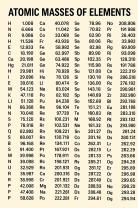What factors affect the density of water?
The density of water can be influenced by various factors, including:
Temperature: Water's density varies with temperature. As water cools, it becomes denser until it reaches its maximum density at around 4 degrees Celsius (39.2 degrees Fahrenheit). Below and above this temperature, water becomes less dense.
Pressure: Changes in pressure can affect the density of water. At higher pressures, such as those found deep in the ocean, water can become denser.
Salinity: Dissolved salts and minerals in water, also known as salinity, can impact its density. Saltwater is denser than freshwater due to the presence of dissolved ions.
Impurities: The presence of impurities, such as gases, can influence water's density. For example, water with dissolved gases like oxygen and carbon dioxide may have a slightly lower density than pure water.
Isotopic Composition: Water molecules can exist in different isotopic forms, such as H2O and D2O (deuterium oxide). D2O is denser than H2O due to the heavier deuterium isotope, so the density can vary based on the isotopic composition.
Phase: Water can exist in different phases (solid, liquid, gas). Ice is less dense than liquid water, which is why ice floats on water.
Altitude: At higher altitudes, where atmospheric pressure is lower, the density of water may be slightly lower.
These factors interact in complex ways, making water's density a variable property under different conditions. For practical purposes, water is often considered to have a density of approximately 1 g/cm³ at standard conditions (20°C and 1 atm pressure).












